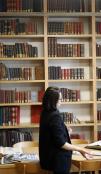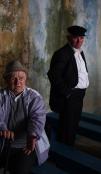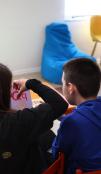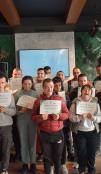A hand toward the future, celebrating Roma culture and tradition in a festival

A 65 years man with a white horse in a field in Berat is the last generation in his family continuing the tradition of horse raising. For centuries, a tradition for Roma people used to pull bow top wagons, nowadays horse keeping and breeding is disappearing indicated by several factors.
“Horses were important for Roma people because the nomadic lifestyle. They were used for work and transport, but now raising horses is becoming expensive. So, when I saw Osman Hysenaj in Berat, I thought this is the last time I see a Roma man with his own horse”, - says Xhemali Moku, a young Egyptian photographer who decided to document lifestyles, crafts and traditions at risk in Roma community.
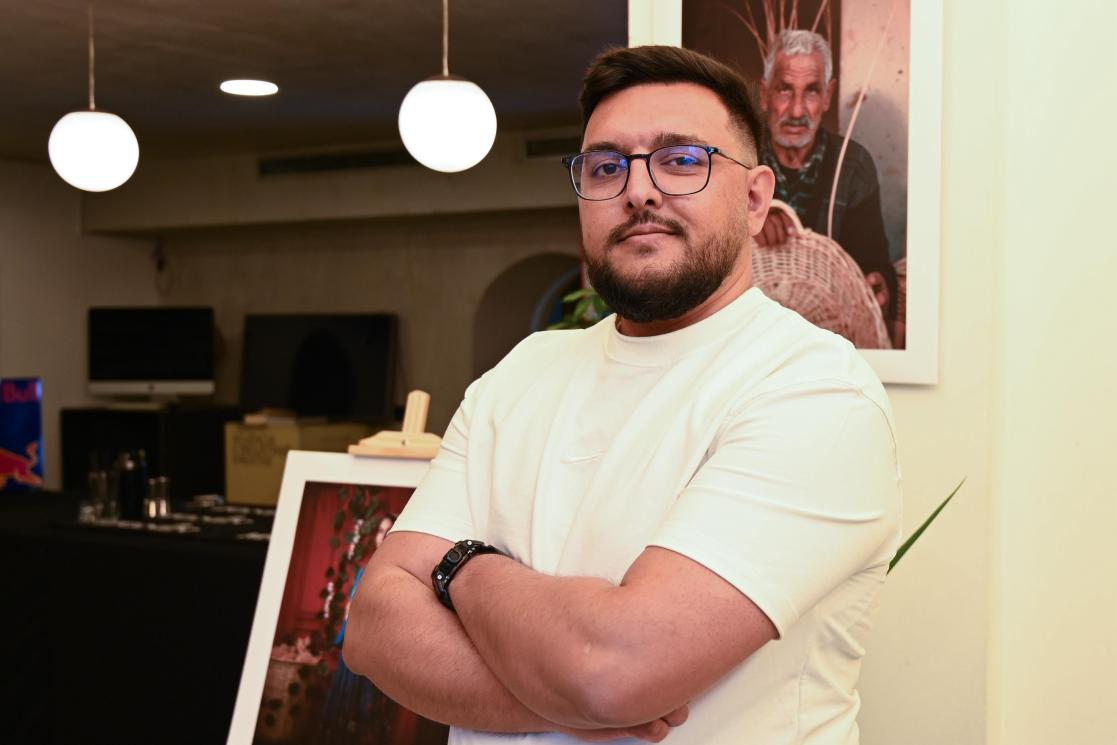
EU in Albania
He has traveled around Albania for more than 1500 kilometers photographing last generations of craftsmen, merchants, artisans, blacksmiths, farmers, embroiderers, including Artur Lufta, a musical instrument repairer in Xhafzotaj Durres, who during the photo shooting, was repairing and old clarinet produced in 1902.
“The images document or show Roma culture and history. They used to travel, so these pictures also show the Roma itineraries in different cities like Berat, Durrës, Elbasan, Fier, Seman, Berat, etc. I have also been trying to show the costumes and the long-lasting need of Roma people to own land, photographing a girl with wheat sheaf”, tells Moku. His exhibition, combining Marubi and Rembrandt characteristics, was opened at Agimi Art Center in Tirana in the framework of HarmoniFest, which took place from 7-9 April.
Lura Elezi, festival’s founder explains “Roma traditions are at risk. Xhemali Moku, our artist with had some exclusive photos for the festival. He confessed through the images that a lot of Roma people have either emigrated, or no longer see the benefit in continuing these traditions”.
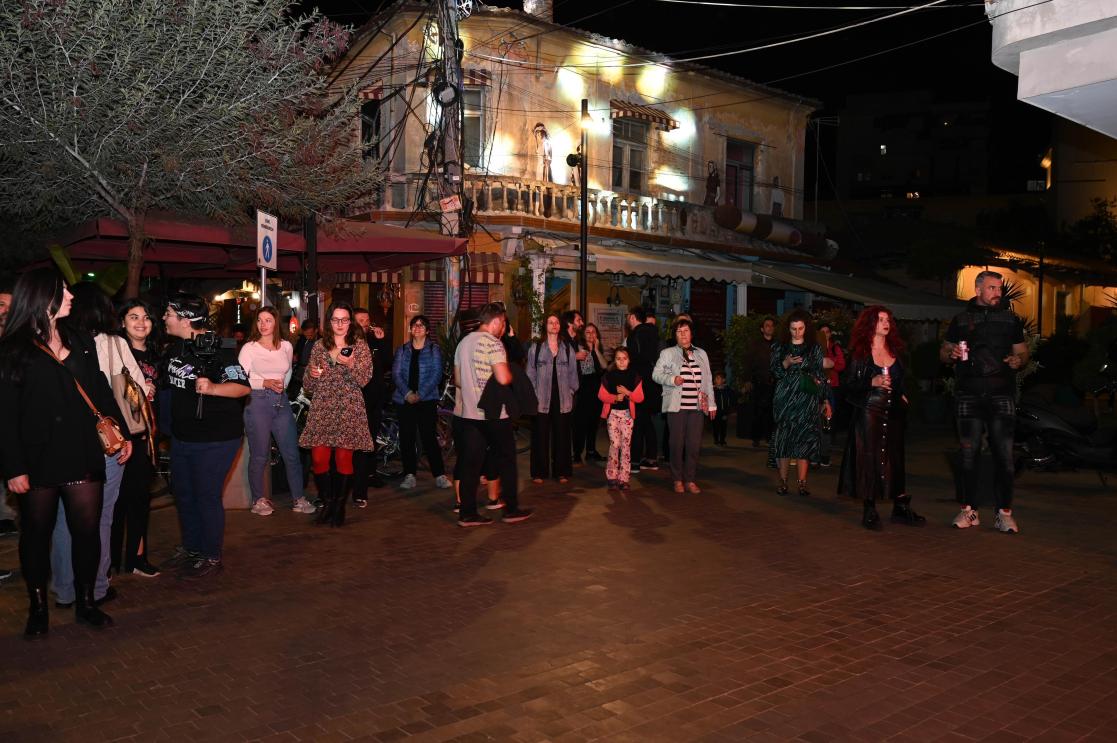
EU in Albania
The motto of Tirana Harmony Fest supported by Delegation of the European Union to Albania was celebrating the diversity of our people. On International Roma Day, at the 8th of April, EU Ambassador to Albania, Silvio Gonzato, in his remarks, emphasized the need to make real progress in education, employment, housing and healthcare.
“Roma communities are active members of the Albanian society, but they still face obstacles and continue to suffer from prejudices and discrimination. To counter this situation, we need a strong political commitment and adequate resources. On Roma International Day I renewed the EU support to Albania and urged the Albanian authorities to implement the National Action Plan for the Inclusion and Participation of Roma and Egyptians”, noted the EU Ambassador.

EU in Albania
All the colors, all the culture
A portrait of an old man, drawn with pencil is one of the most important works of the young artist, Oktavio Kazanxhiu. He is the first member of his family to attend university. The man in the drawing is his grandfather Zenun, who was a farmer and a gardener, but also the most important person in his life. “I am a painter because of him. He encouraged and supported me to become an artist making countless sacrifices for my education. I could even say he sacrificed his life, because he paid my school instead of undergoing his medical examinations”, recalls Kazanxhiu. Honoring his grandfather’s memory after he passed away, Oktavio draw his portrait also to remind himself the importance of education to change the future. “He taught me not to give up and made me promise I would not leave school”, he said.
The portrait was one of the artworks shown at “Europe House” as part of Harmoni Fest, along with paintings from Genta Beqiraj and sculptures from Dejvi Koçi. Koçi also mentions his grandfather’s role in his education at University of Arts in Tirana. “My grandfather has supported my artistic approach when I was a child. Creating people and faces from different materials is a special emotion, because you have the opportunity to express yourself in any kind of form or material, even with clay, which is an ordinary material but one which takes a great value in sculptures”, - describes Koçi. He thinks of beauty when working, trying to give shapes to his thoughts. Young artists and full of dreams, Kazanxhiu and Koçi haven’t been much related to their roots or culture until lately, but they do underline the need to know and promote it.

EU in Albania
“Preserving culture is preserving identity and embracing being different. Like any community or nation, we also preserve our language and culture passing on on to our children. Inequalities in education, health and employment are major challenges for the Roma community. An important part of the work is to help address these challenges and ensure that the community has equal access to all areas of life”, says Fatma Azemi, an accountant and an activist who moderated the main concert of the festival.
In the evening of 8th April, Bucharest Square in Tirana was full of colours, sounds and joy.

EU in Albania
During the day, an artisan fair with 12 stands, showed willow crafts, books, dolls, crocheted items, soaps and jewelry produced by Roma community while in the evening, the music bands “Gipsy Groove” and “Romanipe” created another atmosphere with jazz, rock and funk. Both bands aim to raise awareness on inequality and make traditional Roma songs known to everyone, breaking the stereotypes. HarmoniFest was held in different locations, including Millenium Cinema and Agimi Center screening 6 documentary movies, with different topics.
Drawings, paintings, sculptures, music, all the arts and crafts show a colorful culture and tradition transmitted through generations, while young ones also embrace the values and shapes of modern lives, in a continuing legacy from grandfathers to nephews.
BACKGROUND INFORMATION
“Inclusive EduJobs – For more education and employment possibilities for Roma and Egyptians in Albania” aims the inclusiveness of the Roma and Egyptian communities in Albania in the field of employment and education. The overall project objective is to improve the inclusion of women and men, boys and girls from Roma and Egyptian communities in Albania by strengthening municipal capacities to establish and deliver inclusive services to Roma and Egyptian citizens in the area of employment and inclusive education.

